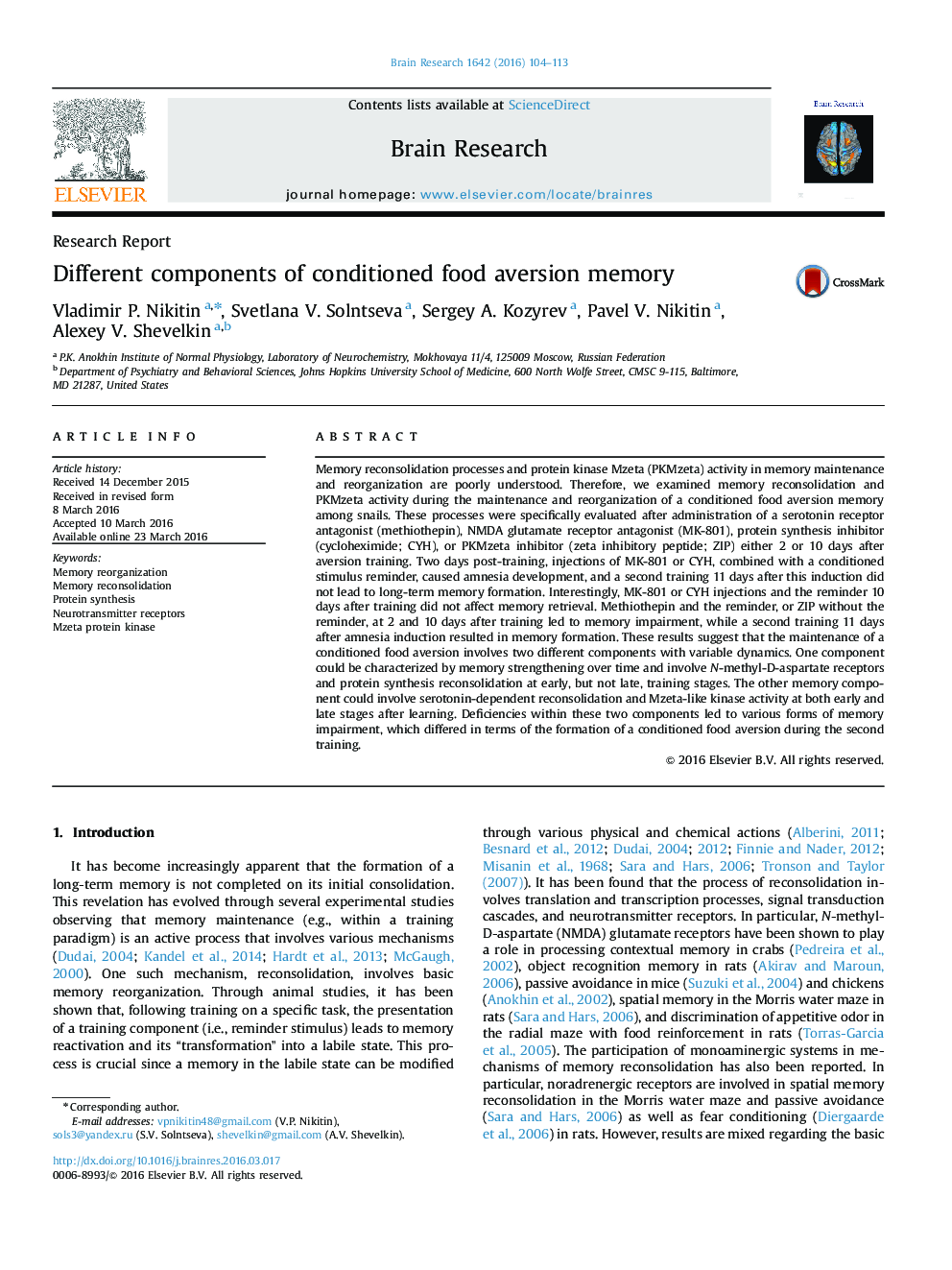| کد مقاله | کد نشریه | سال انتشار | مقاله انگلیسی | نسخه تمام متن |
|---|---|---|---|---|
| 4323555 | 1613800 | 2016 | 10 صفحه PDF | دانلود رایگان |
• NMDA receptor antagonist/reminder at 2 days post-training caused amnesia.
• NMDA receptor antagonist/reminder at 10 days post-training did not affect memory.
• 5-HT receptor antagonist/reminder at 2 and 10 days post-training caused amnesia.
• PKМzeta inhibitor without reminder at 2 and 10 days post-training caused amnesia.
• Conditioned food aversion memory involves 2 components with variable time courses.
Memory reconsolidation processes and protein kinase Mzeta (PKMzeta) activity in memory maintenance and reorganization are poorly understood. Therefore, we examined memory reconsolidation and PKMzeta activity during the maintenance and reorganization of a conditioned food aversion memory among snails. These processes were specifically evaluated after administration of a serotonin receptor antagonist (methiothepin), NMDA glutamate receptor antagonist (MK-801), protein synthesis inhibitor (cycloheximide; CYH), or PKMzeta inhibitor (zeta inhibitory peptide; ZIP) either 2 or 10 days after aversion training. Two days post-training, injections of MK-801 or CYH, combined with a conditioned stimulus reminder, caused amnesia development, and a second training 11 days after this induction did not lead to long-term memory formation. Interestingly, MK-801 or CYH injections and the reminder 10 days after training did not affect memory retrieval. Methiothepin and the reminder, or ZIP without the reminder, at 2 and 10 days after training led to memory impairment, while a second training 11 days after amnesia induction resulted in memory formation. These results suggest that the maintenance of a conditioned food aversion involves two different components with variable dynamics. One component could be characterized by memory strengthening over time and involve N-methyl-D-aspartate receptors and protein synthesis reconsolidation at early, but not late, training stages. The other memory component could involve serotonin-dependent reconsolidation and Mzeta-like kinase activity at both early and late stages after learning. Deficiencies within these two components led to various forms of memory impairment, which differed in terms of the formation of a conditioned food aversion during the second training.
Journal: Brain Research - Volume 1642, 1 July 2016, Pages 104–113
